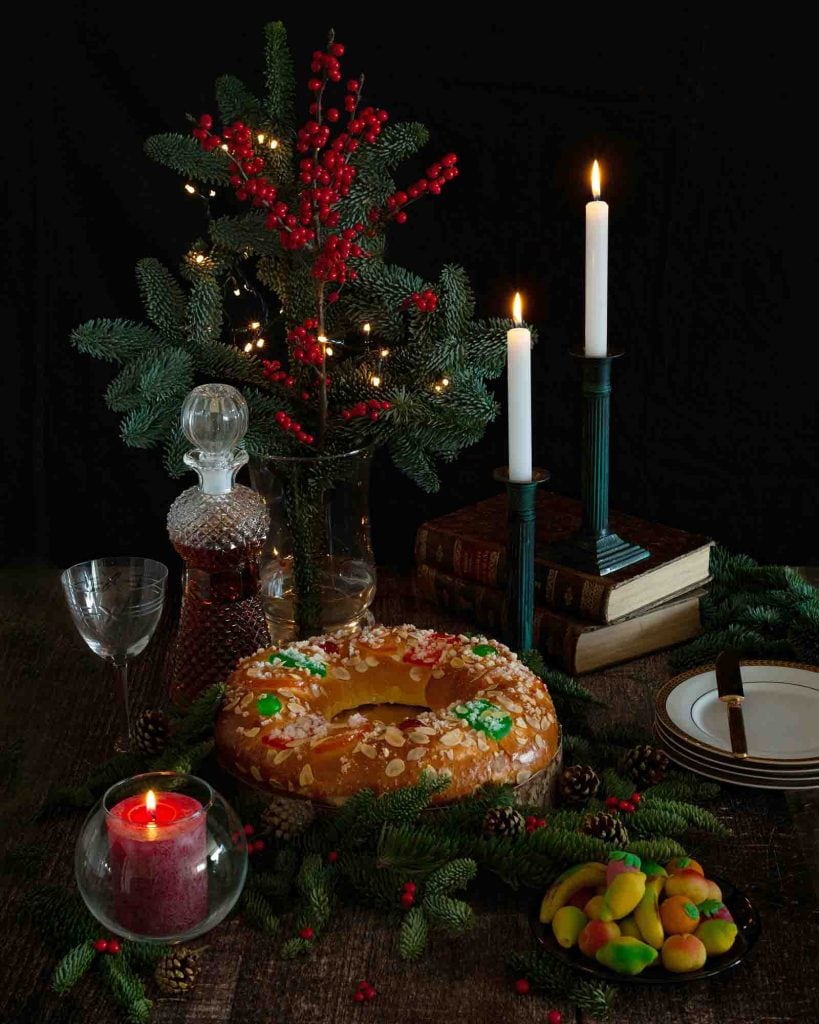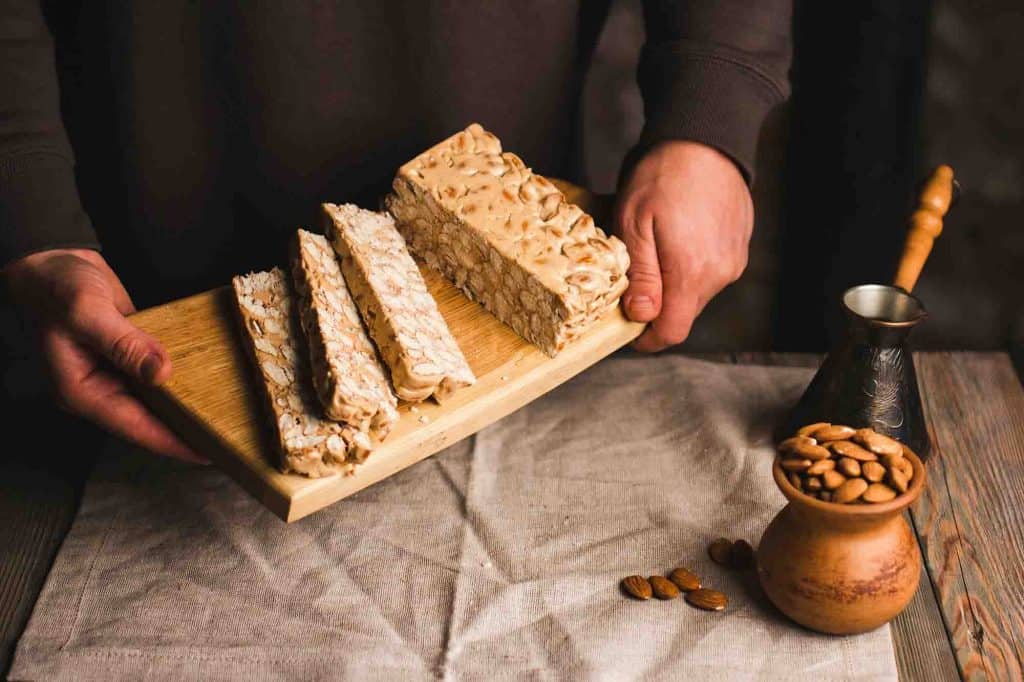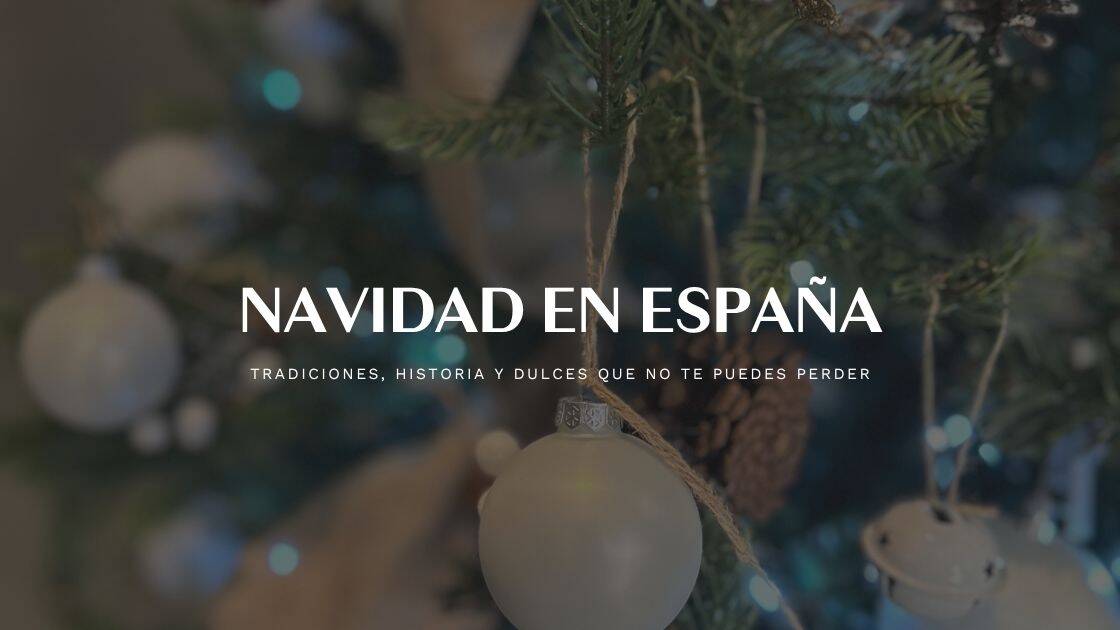Christmas in Spain is not just a season of celebrations; it’s a mosaic of traditions rooted in history, unique flavours, and unforgettable moments. Every custom has meaning, every sweet tells a story, and every date holds a special kind of magic. In this article, we’ll take you on a journey through Spanish Christmas traditions to help you understand why we celebrate the way we do and how you can experience this season like a true local.
Key Dates of Christmas in Spain
Christmas Eve
24th December
The most family-oriented night of the year, when families gather around the table to share a special dinner. Dishes like roasted lamb, seafood, and Christmas sweets fill the tables. Did you know that it was once common to wait until the Misa del Gallo (midnight mass) to dine? Today, many families still keep the tradition of attending this mass.
Christmas
25th December
A day of joy and gifts, although in Spain, Santa Claus wasn’t always the star. His popularity grew in the 20th century under Anglo-Saxon influence. Traditionally, gifts were brought exclusively by the Three Kings on 6th January.
New Year’s Eve
31st December
The year can’t begin without the 12 lucky grapes. This tradition, which began in the late 19th century, was created by Alicante farmers to sell a surplus of grapes. Today, eating the 12 grapes to the chime of the bells is one of the most iconic and fun moments of Christmas in Spain—a true challenge!
Epiphany Eve
5th and 6th January
The grand finale of the Christmas season. On the evening of 5th January, parades fill the streets with floats representing the arrival of the Three Kings, distributing sweets and joy. The next day, children discover their gifts (symbolising the presents offered to Baby Jesus by the Wise Men). The roscón de reyes, with its hidden bean and king, provides a sweet ending to the celebrations.
Why Do We Eat These Sweets at Christmas?
1. Turrón
One of Spain’s most iconic Christmas treats, turrón has Arab roots. Its recipe arrived during the Moorish occupation and became popular in the 16th century. Today, towns like Jijona and Alicante are famous for their artisanal turrón.
2. Marzipans
Marzipan also has Arab origins. In Toledo, its production became a tradition in the 13th century thanks to convents of nuns. Every bite is a piece of history.
3. Sprinkles
Originating in Andalusia, polvorones began as a rural sweet made with lard. Over time, they became a Christmas essential across the country.
4. Roscón de reyes
The roscón has both pagan and Christian roots. Its circular shape symbolises the crown of the Three Kings, but its origins date back to the Roman festival of Saturnalia. During these celebrations, a bean was hidden in bread as a symbol of fertility and good fortune. In Spain, this tradition evolved into the sweet we know today.
MORE INFORMATION
- The Bean: A Roman tradition that once symbolised bad luck but now means you “get” to pay for the next cake.
- The King: Whoever finds it is crowned “king of the house” and receives good fortune for the year.


Christmas Curiosities in Spain
Christmas Lights
Each city lights up with spectacular decorations, creating a magical atmosphere.
Nativity Scenes
Representations of Jesus’ birth are an essential part of Spanish Christmas culture.
Villancicos
While many are local versions of universal carols, others, like Los peces en el río, are purely Spanish. Their lyrics reflect local customs and landscapes.

Experience Christmas Like a Local at Turia Hotels
At Turia Hotels, we want to bring you closer to these traditions and help you experience the magic of Christmas as if you were at home:
Christmas Corner
15th–31st December
A selection of traditional sweets like turrón, marzipan, and polvorones to sweeten your days.
Kings’ Corner
1st–6th January
A delicious roscón de reyes awaits, with special surprises for those who find the bean or the king.
Wherever you’re from, we invite you to discover our customs and be part of the magic of this season.
Discover the Magic of Christmas at Turia Hotels
At Turia Hotels, we want you to experience an authentic and unforgettable Christmas. Explore our locations, enjoy our traditions, and take a piece of Spain with you in your heart.
Book your stay and discover it for yourself.

